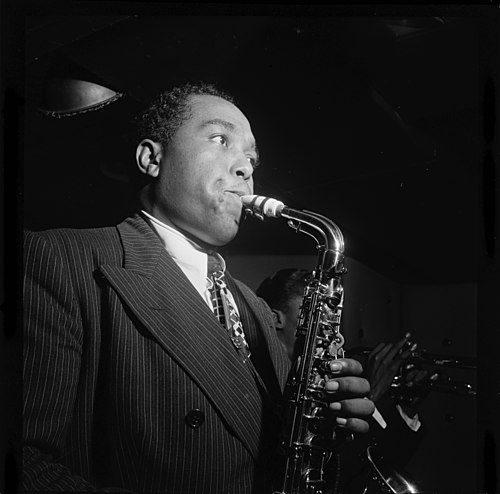What Makes Jazz So Unique?
As a jazz musician sometimes people ask me, what makes jazz so unique? I'm been asked this question so many times that I've finally decided to write an article about it. So without further ado, this is why jazz is so unique.
Jazz is a music that could have only happened in America. It is the result of multiple cultures/musical traditions combining. African Americans created jazz when they combined African rhythms with European instruments and harmonies. This is why Jazz is so unique.
The improvisational aspect of jazz makes it incredibly unique compared to other musical styles; there are no set rules for how a song should be played or performed because each musician brings his/her own interpretation into each performance! There are no written charts or sheet music used during live shows—instead, players improvise around chord progressions while staying true to whatever genre they're performing under (bebop vs swing vs Latin etc...).

Jazz is an art form that has its own unique rules, but those rules can be bent and stretched to your will. The musical rules of jazz are not set in stone. They are there to create a framework that can be stretched and bent at your discretion, with the goal of helping you express yourself through music.
To say that jazz is just a style of music is to do it a disservice, because there are many different styles of jazz—jazz fusion, bebop, swing, cool jazz—and each refers to an entire culture and lifestyle in addition to its notes and rhythms. In fact, the word “jazz” itself can refer to both the sound and attitude that accompanies it: as in “that was some good/great/bad [insert adjective here] jazz!” As with any other art form or subculture (which is what jazz essentially is), members develop their own communities around shared interests; this happens especially within specific schools or neighborhoods where those who share similar values come together under one roof. Regardless of genre differences between them all though (or maybe because they're different?), all forms remain rooted in their origins as African American musical traditions developed through cultural exchange between slaves who were brought over from West Africa during 19th century colonization efforts on U.S territory
Jazz is a genre of music, but not one that you can easily define. The term jazz has been used for decades to describe certain kinds of popular music with roots in African-American culture—but how do you define what jazz is if it's not even a specific style? Jazz is defined by its flexibility and fluidity, which allows musicians to play or sing whatever they want as long as they follow some basic principles.

For example, jazz drummers aren't just rhythm players; they're also composers who develop their own beats and rhythms. They might use any kind of drum set or even an electronic kit (like the Roland TD-11KV V-Drum Kit), along with bells, cymbals and cowbells to add new sounds to their music. On top of this flexible approach to instrumentation comes another layer: improvisation! Jazz musicians aren't afraid to take risks when performing live because they know that innovation comes from taking chances—and that's why we love it!
Jazz improvisation is a process of self-expression. The musician is given the freedom to express his/her own ideas, feelings and sound in the moment. This is why jazz is so unique because it gives you an opportunity to create your own piece of art every night. If you are interested in learning more about music try our music lessons in Ann Arbor.
Some musicians choose to use these rules as guidelines for their performance, while others will ignore them completely. Either way, there are always ways that a musician can express him/herself through improvisation!
When you think of jazz, you may imagine swingin' old-school New York or Chicago musicians in suits and hats playing saxophones and trumpets. You're not wrong—jazz is definitely a genre that has evolved over time. Jazz music is influenced by many genres, including rhythm and blues, bebop and even rock 'n' roll! Many modern-day musicians experiment with different sounds to create their own unique style of jazz.
In addition to being influenced by many musical styles, jazz is also influenced by many cultures from around the world. For example: African American culture contributed greatly to early forms of jazz music through spirituals such as "Deep River." Latin American influences can be seen in Afro-Cuban musical styles like son montuno which provide inspiration for contemporary artists like Chick Corea or Santana (who are both considered pioneers in Latin-infused jazz). Other types of folk dances such as bolero were major influences on dance movements within this genre too!
The idea that jazz improvisation is spontaneous and random—and therefore, artistic in a way that other forms of music aren't—is a common misunderstanding. Jazz musicians are often assumed to be freer than their classical counterparts in terms of how they express themselves. But while it's true that jazz performers aren't constrained by the same rules as classical ones, they don't write out their music beforehand or improvise completely at random either. Instead, they work within familiar melodies and chord progressions and combine them in new ways through what are called "licks" (small musical phrases repeated throughout individual performances). This way of approaching improvisation was revolutionary: before jazz came along, musicians were expected to play exactly what was written down on paper; anything else would have been considered too risky or irreverent for fine art performance venues like Carnegie Hall or The Met Opera House.
Jazz is a way to express yourself. It’s also a way to approach your own life in new ways, as well as other people’s lives.
By learning about jazz and its history, you can learn how artists have used it over the years through their creativity and individuality. You can then apply this knowledge to yourself or others in your life who may be struggling with something or just need some advice on how they should handle situations that come up in everyday life (or maybe just want some encouragement).
At its core, jazz is a beautiful mix of a variety of different genres and styles. It's a fascinating genre to study, and one that continues to evolve.



